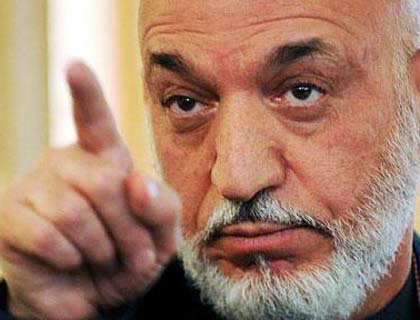After much concerns and confusion over holding Consultative Grand Traditional Assembly or Loya Jirga which imposed huge unnecessary expenses on the shoulder of needy government, finally it was ended without major accident. Even before the organization of the assembly, everybody was in view that it was far likely that participants may approve the Bilateral Security Agreement (BSA). Such optimism was on one hand due to overwhelmingly support of the contract among people and on the other it was due to its importance for ensuring the sustenance of the current fragile system. In general, all believe that without such a contract, it is highly possible that insurgents and neighboring countries turn the wheel of pressure and end the life of the government. However, some may assume that collapse of government is unrealistic as they suggest how it is possible that more than three hundred thousand Afghan security forces cannot stand against few thousand Taliban fighters? But certainly, if today US and other foreign allies stop financing our security establishments, they will not last long.
So despite overwhelming support for the BSA, President Karzai went for the traditional assembly in order to understand the view of people’s representatives. Without considering the costs of the assembly, daily activities were put on hold for almost one week. People worried that government might have some other objective like modification of the constitution. Thanks God, finally it appeared that such concerns were baseless.
But the question is why President Karzai resists against signing the contract now? If he did not have any intention to sign it, why he created such unnecessary headache and worries for people? Unfortunately, he is standing against the decision of very so-called people’s representatives that he himself called to share their opinions.
It is not clear what he indeed urges the US to do because as far as his concerns to country’s independence, territorial integrity and national sovereignty---the three things that President Karzai till now has said as reasons for hesitation--- would be considered with utmost importance by US government, as per its promise. US officials openly promised to equip Afghan security forces with heavy weapons. Additionally, it has spent billions of dollars and made huge military sacrifices to stabilize the country and enable it to stand on its own.
Some other issues that Mr. President has added to his long list of demands to sign the BSA are transparent election, guarantee of peace and stability and resumption of talks with Taliban militants. I think the US has not shown any hesitation. It has always emphasized on free and fair election; Fighting with insurgents and al-Qaeda has been on its top agenda since the very interference into the country, and it has always supported Afghan-led peace talks with militants.
Therefore, it is necessary to realize the severity of the situation and it should be noted that without the support of the United States and other foreign allies, Afghan government cannot stand against insurgents and may face very serious challenges.
Since 2001, Afghan people have paid and made huge sacrifices, acquiring current state of democratic institution, economic welfare, and, more importantly, freedom and liberty. What if after the military withdrawal of international community, insurgency reestablishes its damaged establishment and its supporters help it again to fight fiercely with Kabul government? Wouldn’t it be existential threat? Of course it will be. With the presence of US, the supporters of Taliban-led militants would not dare to support openly or to such extent to be deemed as existential threat to Kabul government.
In addition, if the BSA is not signed, the US will do what it did in Iraq. Definitely, Afghanistan is not far important than Iraq for the US political and economic interests. Presently, Iraq is burning in flames of sectarian violence despite having far stronger government economy and far stable government in comparison to ours. So, certainly, it is highly possible that complete military withdrawal would pave the way for instability, and once again allowing sectarian and communal forces which have been fuelled largely by our neighbors during decades to play role and shape the political and economic destiny of the country. That would be a calamity as the national interest of our neighbors generally cross cut our national interests. In such situation, who will prefer other’s national interest on his own? But the case differs with the US, as our prime national interest---stabilizing the country and eliminating insurgency----is in line with the US national interest.
Thus, it should be noticed by officials that further straining the bilateral relation with US is not in benefit of Afghan people. It is claimed that President Karzai intentionally wants to step back from the signing of the contract for his own personal interests such as support for his favorite Presidential election candidate. But whatever is the reason, the consequences that the dominant uncertainty has on the country cannot be justified. The shrinking investment has already caused huge rate of unemployment and if the situation continues the public dissent increase which is consequential for the government and the present fledgling peace and security. Mere signing of the contract will send a strong message to armed oppositions that ousting the government will remain a dream for them. Countries that were waiting to support and install their own puppets will be disappointed and may change their policies. So, it is hoped that Afghan officials, particularly, President Karzai, would accelerate the process and send a strong message to oppositions that the US may not leave the country. So, the only option for them is to forget the recapture of the power through armed struggle.

